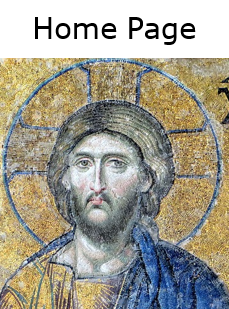The existence of God is one of philosophy's most basic and enduring questions. Yet, it seems that no argument or proof has enough power to force believers to abandon belief in God or compel all hard-boiled atheists and agnostics to change their position. Even if someone could construct an "airtight case" for the existence of a Supreme Being that could not be resisted, the result of such an argument would still be a philosophical abstraction. The resentful opponents could reply, "OK, your Prime Mover exists----so what?" (For an exception, see A Noted Atheist Changes His Mind.)
Therefore, all proofs that have been advanced can also be resisted. This is the case because:
- There is no such thing as a strictly neutral inquiry when it comes to the existence of God. Everyone has a personal perspective or subjective bias.
- We do not experience God directly. In other words, God is not "in our faces". While some individuals believe they have had a special encounter with or experience of God, most of us live our mundane and daily lives with no sense of God's immediate presence. (See Why Is God Hidden and Silent?)
Nevertheless, many people find the proofs for God's existence compelling and useful. Theists can certainly hold their own in debates and discussions with atheists.
A Contemporary Version of a Classic Proof for the Existence of God
The Muslim philosopher, Al Ghazali (c.1056–1111) is credited with advancing what is known as the Kalam Cosmological Argument for the existence of God. Philosopher and Christian apologist, William Lane Craig is a contemporary exponent of the Kalam cosmological argument, which can be summarized in three simple statements:
- Whatever begins to exist has a cause of its beginning.
- The universe began to exist.
- Therefore, the universe has a cause of its beginning.
While these two premises and the conclusion seem deceptively simple, Al Ghazali presented philosophical arguments supporting each step, which Lane Craig augments with contemporary philosophical arguments and evidence based on contemporary physics.
See The_Kalam_Cosmological_Argument by William Lang Craig.1
Note: To view this PDF file, you will need the Adobe Acrobat Reader, which you can download for free at Acrobat Reader.
___________________________1This linked PDF file was downloaded from William Lane Craig's website, www.reasonablefaith.org. It is also available as an article on his website.
